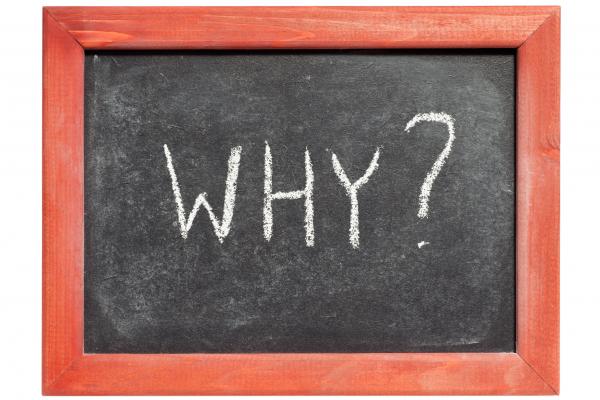Last week’s school shooting in Marysville, Wash., has us all asking the question again: Why did this happen?
Snohomish County Sheriff Ty Trenary gave voice to the despair many are feeling as we search for answers. “The question everybody wants is ‘Why?’ I don’t know that the ‘why’ is something we can provide.”
Why did Jaylen Fryberg text his friends and family members to join him for lunch only to shoot them and then shoot himself? Whenever these tragedies occur we are tempted to blame the shooter by making him into a monster. We label the shooter “mentally ill,” claim that he was isolated from his peers, or was a generally troubled youth.
The answer to the question “Why?” has usually been to blame the shooter. We make the shooter into a monster because it allows us to make sense of senseless violence. Why did this tragedy happen? Because he was evil.
But Fryberg’s case won’t allow such easy answers. By all accounts, he was a popular and happy young man, seemingly incapable of causing such harm.
This horrific shooting is so scary because no one saw it coming. If a popular kid like could commit such a heinous act, anyone could do the same. Fryberg’s case deprives us of the easy out of blaming another. The only thing left is to face our own violence.
This requires a shift from individual blame to corporate responsibility. We still must answer the question “Why?” but now we can begin to recognize that the answer is bigger than any individual. Until we understand how big the problem is we will never have the resources to solve the problem.
The problem is that we live in a culture of violence. As James Alison states in his adult education series Jesus the Forgiving Victim: Listening for the Unheard Voice, “We humans are not only slightly affected by, but are actually run by, a culture of war and violence.”
Admittedly, that’s a pretty depressing statement, but it’s also realistic. Violence is embedded in human culture and we are unaware of the various ways we are run by this culture of violence. The most obvious example is that the news feeds us a daily diet of violence and fear. Global politics has been dominated by acts of violence and counter-violence. Local politics is run by a spirit of violent hostility both in and out of election season. And, yes, violent movies and video games that lack redemption and show little respect for human life bear some responsibility for fostering a culture of violence.
The answer to the question “Why?” is that we live in a culture of violence that infects us all with a faith in violence as a legitimate means to achieve our goals and desires. In the same way that God called out to Cain, God calls out to us, “Sin is lurking at the door; its desire is for you, but you must master it.”
Violence cannot exist without our faith in it, which is why Scripture says its desire is for us. But how do we master the sinful desire of violence?
Fortunately, the culture of violence and war is not the only culture that exists. There is an alternative culture. It’s a culture that invites us to repent of personal and political violence, but this culture goes beyond repentance. You master the sinful culture of violence by living into the culture of forgiveness.
Jesus is the “Forgiving Victim” because as he suffered violence from his fellow human beings, he prayed not for the revenge of counter violence against his enemies, but for his enemies to be forgiven. “Father, forgive them, for they do not know what they do.”
The only alternative to the culture of violence is the culture of forgiveness modeled by Jesus. Fortunately, we have seen the culture of forgiveness modeled for us in a Christ-like way since the tragic shooting in Washington.
Nate Hatch was among the victims that day. Nate, Jaylen’s own cousin, was shot in the jaw, but survived the shooting. While recovering at a hospital, Nate made two remarkable tweets. The first was an agonizing tweet, “Worst pain ive ever felt in my life.” The physical and emotional pain of being shot by a trusted family member may affect Nate for the rest of his life. But Nate doesn’t want revenge. Fifteen minutes later, Nate posted another tweet, “I love you and I forgive you jaylen rest in peace.”
Why do these tragic events happen? Because even a good kid like Jaylen cannot escape being run by a culture of violence. What can we do to stop these events from happening again? If we are serious about answering that question, we must follow Nate’s example. We must repent of our culture of violence and live into the culture of forgiveness.
Adam Ericksen blogs at the Raven Foundation, where he uses mimetic theory to provide social commentary on religion, politics, and pop culture. Follow Adam on Twitter @adamericksen.
Image: YuryZap / Shutterstock.com
Got something to say about what you're reading? We value your feedback!
